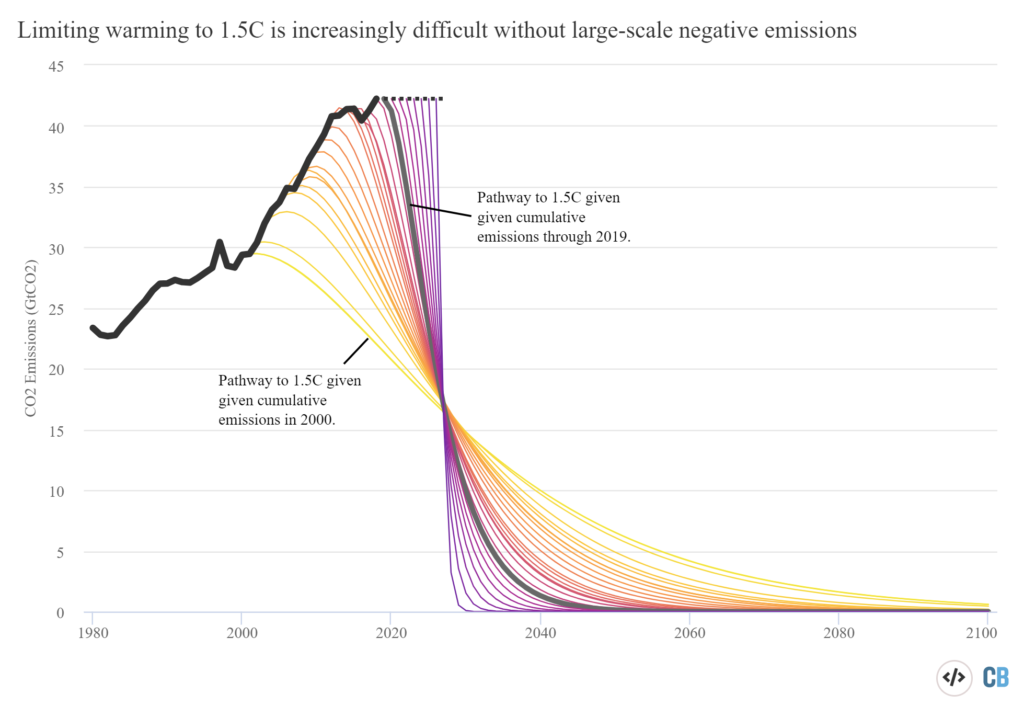Efter jag skrev förra inlägget till dig skummade jag faktiskt igenom den senaste IPCC rapporten och specifikt om extremväder eftersom det är mer eller mindre mitt område. Och det finns här en stor osäkerhet, vi kan inte säga så mycket egentligen om hur det kommer bli och det har har mycket sin grund i att extrema väderhändelser är svåra rent statistiskt eftersom de sker sällan. Små ändringar i en modell har stor påverkan på utfallet.
Jag citerar de stycken ur Summary for Policymakers som jag tänkte på när jag skrev det du citerar (min kursivering):
"It is
virtually certain that hot extremes (including heatwaves) have become more frequent and more intense across most land regions since the 1950s, while cold extremes (including cold waves) have become less frequent and less severe, with high confidence that human-induced climate change is the main driver14 of these changes. Some recent hot extremes observed over the past decade would have been
extremely unlikely to occur without human influence on the climate system. Marine heatwaves have approximately doubled in frequency since the 1980s (
high confidence), and human influence has very likely contributed to most of them since at least 2006."
"Human influence has likely increased the chance of compound extreme events18 since the 1950s. This includes increases in the frequency of concurrent heatwaves and droughts on the global scale
(high confidence)"
"Global warming of 2°C would extremely likely be exceeded in the intermediate scenario (SSP2-4.5)."
"Under the five illustrative scenarios, in the near term (2021-2040), the 1.5°C global warming level is very likely to be exceeded under the very high GHG emissions scenario (SSP5-8.5), likely to be exceeded under the intermediate and high GHG emissions scenarios (SSP2-4.5 and SSP3-7.0), more likely than not to be exceeded under the low GHG emissions scenario (SSP1-2.6) and more likely than not to be reached under the very low GHG emissions scenario (SSP1-1.9)27."
"With every additional increment of global warming, changes in extremes continue to become larger. For example, every additional 0.5°C of global warming causes clearly discernible increases in the intensity and frequency of hot extremes, including heatwaves (very likely), and heavy precipitation
(high confidence), as well as agricultural and ecological droughts30 in some regions
(high confidence)."
"There will be an increasing occurrence of some extreme events unprecedented in the observational record with additional global warming, even at 1.5°C of global warming. Projected percentage changes in frequency are higher for rarer events (
high confidence)."
"It is very likely that heavy precipitation events will intensify and become more frequent in most regions with additional global warming. At the global scale, extreme daily precipitation events are projected to intensify by about 7% for each 1°C of global warming
(high confidence). The proportion of intense tropical cyclones (categories 4-5) and peak wind speeds of the most intense tropical cyclones are projected to increase at the global scale with increasing global warming (
high confidence)."
Även figur SPM6.
Såklart finns det osäkerheter, men de är, som du ser ovan, små. Och vi har inte råd att luta oss tillbaka på potentiella osäkerheter.
Jag har skrivit om det tidigare men den enda framkomliga vägen är att gå från dagens starka fokus på den egna individen till en mera kollektivt syn. För mig som individ finns det i princip ingen nytta alls med att leva på ett sätt som är hållbart ur miljösynpunkt. Så varför skall jag då göra det när allt handlar om en själv? Vad tjänar jag på det?
Och hur tror du att vi bäst förändrar det kollektiva? Ärlig fråga alltså, jag sitter och funderar på själv hur jag kan göra mest skillnad, huruvida det är etiskt korrekt med det ena eller det andra och så vidare.

